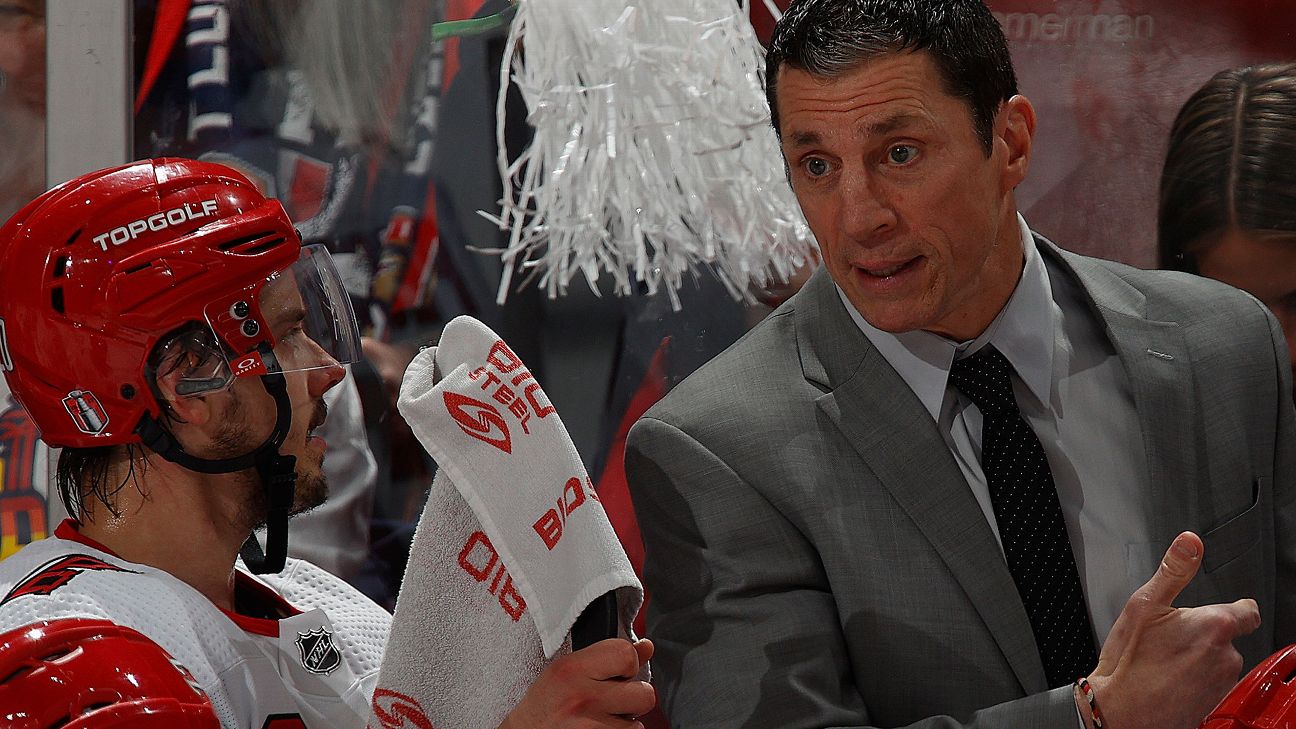![cricket:image:1432852 [900x600]](https://a.espncdn.com/i/cricket/cricinfo/1432852_900x600.jpg)
Wood double confirms Nottingham Forest survival
After a challenging start to IPL 2024, Harshal Patel has come into his own in the last few matches. His upturn in form has mirrored the fortunes of Punjab Kings, his new team, who are still in contention for the playoffs. Currently after 56 matches, only Jasprit Bumrah is ahead of Harshal on the list of top wicket-takers this season . In this interview, Harshal discusses his processes, how perspective is important in analysing bowlers in T20, and what he has done differently of late.
How would you define your season so far? There are still certain aspects that I could have done better in, but overall, if I look at the number of wickets I've picked up, and the situations I've picked them in and the batters I've gotten out, they've made an impact on the game. This season, especially, looking purely at numbers is probably not a smart thing to do. So I would still call it an above-average season.
Can you pick out an instance from this season where you may have not started well, but your finish gave you a lot of joy? The 20th over against MI. They were on course to get 210-215, and I bowled I think a five-six run over [seven runs] and picked up two wickets; four of those were byes. That's just one instance.
Even against KKR, where I conceded 48 in three overs, I got Rinku [Singh] out at the right time, which meant there was going to be a new batter. That didn't make much of a difference because he [Ramandeep Singh] came out and hit a six first ball. But the way the T20 game is evolving, picking up wickets is probably the only way you're going to make an impact on the game, because you could bowl a brilliant over and if two batters are settled, they will make it up in the next over. I think consistently getting wickets at the right time is very important.
Has taking wickets been a lot more challenging this season? Purely from a wicket-taking point of view, if I have certain deliveries that are working for me, if they're coming out of my hand well, if I'm bowling them well, and if I'm confident about those deliveries, especially the slower balls, I know I can pick up two or three wickets in an over. For me, it's all about setting those slower balls up in the right way and executing them when I know the batter could make a mistake and I have a higher chance of forcing an error. So it has not been difficult to pick up wickets. The difficulty comes when I have to contain, because my USP has always been picking up wickets, and that's an aspect of the game that I've been working on.
How do you work on it? I have sort of figured out what I need to do to be able to shut batters down when I need to, and there's a lot of skill aspects involved in that as well. I've been working on those skills consistently from even before the season. I've not been able to consistently do it in the game, but I'm on the right path and when it all comes together, I want to be as good as someone like Jasprit [Bumrah], because we keep talking about bowlers going at nine or ten an over and throughout this IPL, there has been one fast bowler [Bumrah] who goes for less than six most of the time. I challenge myself to be as good as him.
The slow, dipping yorker is one of your specialties. You mentioned after the CSK game that you weren't confident of executing it earlier in the season. What changed? That particular delivery is so difficult to bowl that there's no real technique to it. It's all about the feel, so the more you bowl it, the better you get at it. There is a certain conditional aspect to it as well. When the ball starts reversing and I bowl the delivery, it tends to drift away and that makes it even more challenging for the batter to see and hit that. It also allows me to bowl it with a bigger angle into the batter, so it forces them to go through the leg side. And when it drifts away, it almost always misses the bat.
If you remember the wicket I got of Shahrukh [Khan] in the Gujarat Titans game, it drifted away quite a bit, so there are conditional aspects to it, but once you get the feel that you are going to execute it, it becomes a lot easier.
If you look at CSK game, in the 19th over, I probably bowled four of those back to back, and I executed almost every one of them. When it doesn't come out, I have to go back to the nets and just keep bowling it. I know that when I start executing those deliveries, I will pick up wickets, because I know how to set that delivery up. And when I'm confident about executing it, I know what I need to bowl before that delivery to make it even more effective.
You're at the top of your mark, bowling to MS Dhoni, who has been in terrific hitting form. You get him with the dipping yorker. Did you plan that dismissal? Before the innings I had planned to go around the stumps to him and bowl a wide yorker, but the way the ball was coming out of my hand and the way it was drifting, I thought, "Okay I'm going to take a chance here." And if I get him out, the 20th over becomes a lot easier for us. I was pretty confident with my execution. I thought, even if he sees it out of the hand, there's very little probability of him hitting that for six.
Largely, do you feel batters are better prepared against your slower ones these days? It again comes down to execution, right? Because I've proven this over and over: that when I execute [my deliveries successfully], most of the batters can't hit it. When I'm executing, I know I can bowl six in a row and they still won't be able to hit. They might get away with one, but they still might not be able to hit more than one. So for me, that delivery is all about execution. And when the conditions allow me to bowl six slower balls, I will bowl six slower balls. I have no shame in being called a spinner who runs fast and bowls offspin, which people have said multiple times - which is absolutely fine.
Pat Cummins said earlier this season that if you're conceding below ten an over, it feels like a job well done. For sure. The benchmark that you set for bowlers in how you judge them has to be based on context, right? If there's a bowler who's bowling two overs upfront in the powerplay and two at the death, you can't expect him to bowl his four overs for 24 runs. That's just not practical. The way this season has gone, very high run rates, especially in the powerplay and in the death overs, I would still consider nine to ten an over to be a brilliant spell if you have picked up a couple of wickets at the right time and made sure that instead of getting 220-230, they end up being on 205-210. So making the difference of 10-15 runs in the innings is all that you're looking for.
Like I've said before, how I want to judge my performances is how much impact have I made on the game and the eventual outcome of the game, which is again dictated by a lot of variables. But if I had not picked up that wicket [of Rinku Singh in the KKR game], could [the Punjab Kings batters] have gone on to make 20 more in the chase, even though they got 263 or whatever/ So it's all about making an impact. When you see the number ten against your economy, it does feel a little weird, but the way the game is evolving, I think the benchmark also has to evolve.
So essentially you debrief differently? Let's say you've conceded 48 in three overs but bowled a tight final over and conceded only two runs and picked up a couple of wickets. Traditionally 4-0-50-2 would "look" bad. Right. When you've conceded 48 in three overs, you have made some mistakes, so you still want to look at it and try and get better at it. Could you have conceded, say 38, instead of 48? So it's all about looking at those small areas where you can get better, but at the same time, you have to be a little brave and say that even though that I may have conceded 48 in four overs, I know that I've made an impact on the game.
How different has it been being a part of the Punjab Kings set-up as opposed to RCB? It's not been that different because I've always been someone who keeps to himself. For me, it's all about my process, how I prepare, whether it's in practice or when we turn up for the game. Even after the game I have my routines: a preliminary review of what I was able to do and what I was not able to do. For me, it's a very internal process. The external environment doesn't really make much of a difference to me, so the transition [of teams] was never very difficult for me.
Of course, when you spend three-four seasons with the same players, they know how you like to go about things, so there's more understanding and empathy if you've had a bad day. But even at Punjab, like the first four games I was conceding ten or 11 an over every game and I wasn't bowling well, but there was the same kind of empathy from my team-mates and the environment was very calm and free. There was no significant change coming from the RCB dressing room to the Punjab dressing room.
What have you picked up from bowling alongside someone like Kagiso Rabada? Our fast-bowling unit is pretty tight. Me, KG, Arsh [Arshdeep Singh], Nathan Ellis. Woaksey [Chris Woakes] is again someone whom I have really looked up to in terms of his skills to swing the ball both ways, his ability to land the ball on the right area over and over again. I've had a lot of conversations with Woaksey about what he does when things are not going his way. Like, there are days when you turn up on the field and you know you can't land the ball where you want to land it. I've had a great relationship with KG for a while I was with him for three years [at Delhi Capitals].
Before and after a game, there's always some conversation happening around how we can get better as individuals and as a unit. There's a lot of value in just being able to have those open conversation in the team. And you have that confidence that if I make a constructive criticism, I'm not going be taken out of context and they're not going to feel bad or take it personally. The same applies to me. That is the camaraderie we have in the bowling unit and it's a very valuable thing to have.
Can you pick out an instance of receiving this constructive feedback about an aspect of your game that you worked on? KG and I were having a conversation after the third game or fourth game, where I was conceding runs at a high economy. And he said to me, "You are bowling really well, your energy is great on the ground, and you're executing most of the deliveries that you want to execute. It's just about that one over that you're getting wrong, which is reflecting on the scoreboard. So just think about how you can get better at that and not think about anything else." To have that validation is good, because sometimes you feel, "Yeah, I'm bowling well, but the scorecard doesn't reflect it, so is it just me who's thinking that I'm bowling well or am I actually bowling well?" When the validation comes from your peers or your coaches, it's very valuable in reinforcing the fact that you are actually bowling well and you just need to tighten up a little bit.













